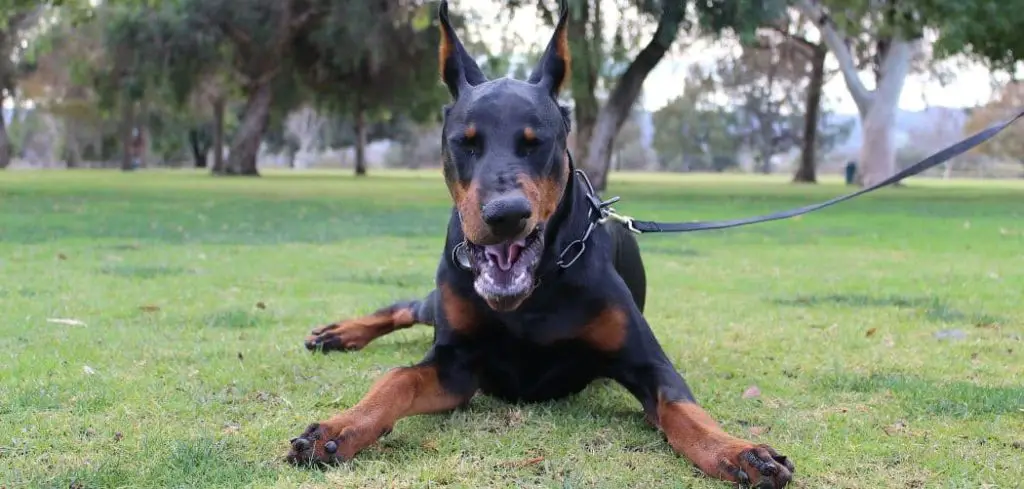When your dog is lethargic, drooling, and not eating, it’s a clear sign that something is wrong. These symptoms—especially when they appear together—often indicate underlying illness distress.
While some cases may be mild and temporary, others could be life-threatening without prompt attention.
We outline what may be behind your dog’s lethargy, drooling, and appetite loss, how to handle it at home, and when it’s time to visit your veterinarian.
Dog Lethargic Drooling Not Eating: Why It Happens
When your dog is lethargic, drooling, and not eating, these symptoms are commonly linked to serious health issues like toxin ingestion, pancreatitis, infections, dental disease, or organ dysfunction. When a dog is lethargic, drooling, and not eating, it usually means their body is overwhelmed—whether by pain, nausea, fever, or systemic illness.
The symptoms may develop gradually or suddenly, but in either case, they signal a need for immediate attention.

Dog Lethargic Drooling Not Eating: Common Causes
Toxin Ingestion or Poisoning
Dogs are curious by nature and can easily ingest harmful substances—from human medications and cleaning products to chocolate, grapes, and toxic plants.
One of the first signs of toxicity is sudden drooling, followed by nausea, vomiting, weakness, and appetite loss.
If your dog is also trembling, disoriented, or has seizures, seek emergency care immediately.
Bring any packaging of the suspected toxin with you to the vet to help with diagnosis and treatment.
Pancreatitis
Pancreatitis is an inflammation of the pancreas that often causes severe abdominal pain, nausea, vomiting, and lethargy.
It’s a common culprit when a dog becomes sluggish, starts drooling excessively, and refuses food—especially if they’ve recently eaten fatty human food or gotten into the trash.
Panting, hunching over, or bloated appearance may also accompany these symptoms.
Pancreatitis is serious and often requires hospitalization for IV fluids, pain management, and monitoring.
Related: Dog drooling and not eating (Causes and when to worry)
Gastrointestinal Infection or Obstruction
A stomach or intestinal issue—like a bacterial infection, virus, or even a blockage from a foreign object—can cause your dog to feel sick and lethargic.
These conditions lead to nausea, which triggers drooling, and a total disinterest in food.
Obstructions, in particular, are dangerous and can cause vomiting, dehydration, and shock.
If your dog is lethargic, drooling, and not eating—and hasn’t had a bowel movement or is vomiting—don’t wait to seek care.
Dental Disease or Oral Pain
A painful mouth can cause dogs to avoid food, drool more than usual, and become withdrawn or fatigued.
Infections, broken teeth, or abscesses in the gums can make chewing difficult or unbearable, leading to a refusal to eat and general malaise.
Check your dog’s mouth for signs of swelling, bad breath, or bleeding. Senior dogs and those without routine dental care are especially vulnerable.
Liver or Kidney Disease
When a dog’s liver or kidneys begin to fail, symptoms such as lethargy, drooling, and appetite loss often appear.
These organs help detoxify the body, and when they’re not functioning properly, toxins build up—making the dog feel ill.
You may also notice vomiting, weight loss, increased thirst, or yellow-tinged gums and eyes. Blood tests are needed to diagnose these conditions, and early intervention is key to managing them.
What to Do if Your Dog Is Lethargic, Drooling, and Not Eating
If your dog is showing these symptoms, here’s what you can do immediately:
Check the mouth and gums for signs of dental pain or swelling.
Remove food for 12 hours, but ensure fresh water is available at all times.
Offer bland food like boiled chicken and rice once the stomach settles.
Keep your dog cool, calm, and quiet to avoid additional stress.
Track additional symptoms, including vomiting, diarrhea, or urination changes.
Monitor closely. If your dog’s condition doesn’t improve within a short window—or worsens—don’t delay seeking veterinary attention.
When to Call or Visit Your Vet
Call your vet immediately if:
Lethargy, drooling, and refusal to eat persist for more than 24 hours.
Your dog is vomiting, has diarrhea, or shows signs of pain.
You suspect toxin exposure or foreign object ingestion.
There are signs of neurological issues (tremors, confusion, collapse).
Your dog is very young, very old, or has a chronic condition.
These symptoms together are rarely minor, especially if they appear suddenly or severely. Early treatment often leads to better outcomes.
Read more: Dog panting drooling and not eating (What it means)
Key Takeaway
If your dog is lethargic, drooling, and not eating, don’t dismiss it as just a passing issue. These are clear signs that your dog is feeling unwell—and in many cases, the underlying problem can escalate quickly without care.
Trust your instincts. You know your dog best. If they’re not acting like themselves and are refusing food while showing physical symptoms, reach out to your veterinarian. Your quick response could make all the difference.
